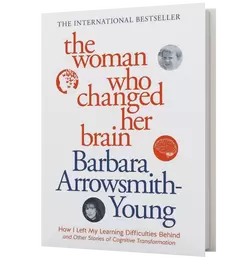Memory Retention DifficultiesSome experts believe there could be hundreds of ways to describe the processes used to remember. What's fascinating is that at Arrowsmith, we've noticed something interesting: each of our cognitive functions, have their own type of memory. So, it's not just one general memory system at work; it's like each part of our brain has its own memory storage and retrieval system tailored to its specific job.
|
Memory Retention Difficulties - Cognitive Functions
Memory retention difficulties can be caused by weaknesses in one or more of the
following cognitive functions:
following cognitive functions:
|
Memory for Information and Instructions (Retention of Details and Factual Information) |
Predicative Speech (Memory through recoding information using internal speech) |
Symbol Relations (Memory through understanding of meaning - semantic memory) |
|
Brocas Speech Pronunciation (Memory for speech sounds and words - phonemic memory) |
Object Recognition (Visual memory for people, places and things) |
Quantification Sense (Memory and manipulation of numbers) |
|
Lexical (Memory of vocabulary) |
Discover Your Unique Cognitive Profile
|
Arrowsmith Cognitive Questionnaire
Take our 30-minute cognitive profile questionnaire to start the journey into understanding your brain's strengths and weaknesses through a cognitive lens.
Vertical Divider
|
Arrowsmith Cognitive Assessment
The Arrowsmith Cognitive Assessment, administered by an Arrowsmith trained professional, will provide you with an in-depth insight into your unique cognitive profile.
|
Memory is Notoriously Inconsistent
|
Exploring memory through various cognitive functions and networks sheds light on why memory can be so inconsistent, often leading to accusations of having "selective" memory.
Students are frequently perceived as being deliberately forgetful or lacking in care when it comes to their classes or study routines. However, it's probable that their cognitive functions are playing a role in hindering their progress. Numerous memory aids exist, such as lists, schedules, timers, apps, and locator devices. While helpful in certain instances, they're not universally effective and may not suit all situations or types of information. It's crucial to understand that these aids can't fully replace the intricate brain processes involved in memory retention, recall, and application to new contexts. The decline in memory often associated with aging is commonly viewed as an unavoidable aspect of life. However, this perception is inaccurate; it's not necessarily an inevitable consequence of getting older. |
Memory Retention Difficulties Don't Need to be for LifeWhile physical aging is unavoidable, cognitive aging isn't. Maintaining a sharp mind and memory can be achieved through effective cognitive training.
Students also need not endure difficulties recalling lectures, experiencing poor test outcomes, or being called forgetfulness or carelessness. There is a solution. At Empowering Lives, we can assess and enhance specific memory components tailored to individual profiles and objectives. Reach out to us to explore the possibilities at any stage of life. |
Testimonials
|
My daughter is more confident, has better memory, passed English with a good solid C. I would recommend the Arrowsmith Program as it has allowed my girl to maintain B’s and C’s at school. I can’t even imagine how hard school would be for her now if we hadn’t started Arrowsmith three years ago. Empowering Lives have managed the online and we love the convenience. Michelle - Parent |
Take the next Step
|
Is Arrowsmith right for me
Vertical Divider
Talk to
Admissions |
What we offer
Vertical Divider
Check out our
Programs |
How to Enrol
Steps to
Enrolment |






